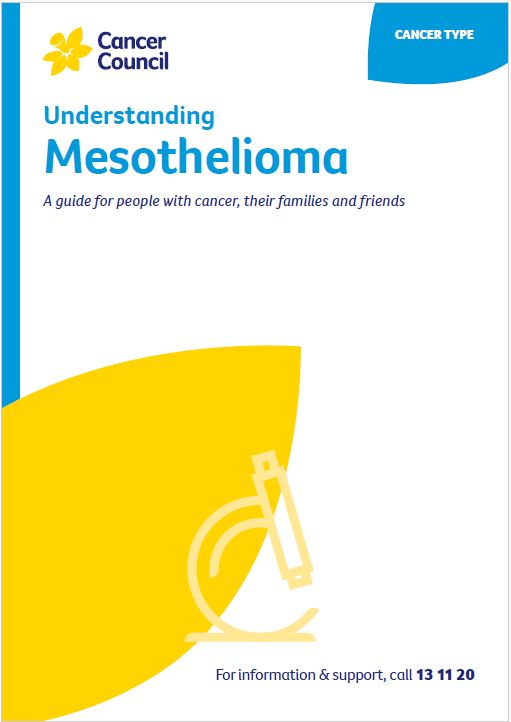- Home
- Pleural mesothelioma
- Treatment
- Trimodality therapy
Trimodality therapy for pleural mesothelioma
Having a combination of chemotherapy, radical surgery and radical radiation therapy to treat mesothelioma is known as trimodality therapy.
Learn more about:
Overview
The aim of having the 3 types of treatment is to remove as much pleural mesothelioma as possible, and stop any remaining mesothelioma cells from growing or spreading. The most effective combination will depend on how you respond to treatment.
Trimodality therapy is an intensive treatment that is available only in a few centres and it is not commonly recommended. Despite reduced lung capacity afterwards, some people continue to live independently.
Who can have trimodality therapy
- with a small amount of pleural mesothelioma at an early stage (T1–T3)
- with an epithelioid type of pleural mesothelioma
- whose scans show a good response to chemotherapy before surgery and no signs of pleural mesothelioma progression
- with no signs of spread into the lymph nodes or any other disease on CT and/or FDG–PET scans
- who are able to live independently with one lung
- who are physically fit enough for surgery.
Your surgeon is the best person to work out if trimodality therapy may be suitable for you. Ask your surgeon or oncologist to explain the likely outcome for you.
An surgery is a major operation, and not everyone wants to go ahead after the risks and benefits are explained. Sometimes, even if someone seems suitable for intensive treatment, the doctor may adjust treatment if the mesothelioma doesn’t respond well to chemotherapy, is growing quickly or has spread, or if the person has become too tired or unwell.
The 3 parts of trimodality therapy
1. Chemotherapy
| |
2. Radical surgery
| |
3. Radical radiation therapy
|
After I was diagnosed, I had chemotherapy for 10 months. Then I had my right lung removed. This surgery was followed by 30 treatments of radiation therapy.
SERAFINA
Podcast: Making Treatment Decisions
Listen to more episodes from our podcast for people affected by cancer
More resources
All updated content has been clinically reviewed by A/Prof Anthony Linton, Medical Oncologist, Concord Cancer Centre and Concord Repatriation General Hospital, NSW; Dr Naveed Alam, Thoracic Surgeon, St Vincent’s Private Hospital Melbourne and Monash Medical Centre, VIC; Prof David Morris, Peritonectomy Surgeon, St George Hospital and UNSW, NSW. This edition is based on the previous edition, which was reviewed by the following panel: A/Prof Anthony Linton (see above); Dr Naveed Alam, (see above); Donatella Arnoldo, Consumer; Polly Baldwin, 13 11 20 Consultant, Cancer Council SA; Dr Melvin (Wee Loong) Chin, Medical Oncologist, Sir Charles Gairdner Hospital and National Centre for Asbestos Related Diseases, WA; Prof Kwun Fong, Thoracic and Sleep Physician and Director, UQ Thoracic Research Centre, The Prince Charles Hospital, and Professor of Medicine, The University of Queensland, QLD; Vicki Hamilton OAM, Consumer and CEO, Asbestos Council of Victoria/ GARDS Inc., VIC; Dr Susan Harden, Radiation Oncologist, Peter MacCallum Cancer Centre, VIC; Penny Jacomos, Social Worker, Asbestos Diseases Society of South Australia, SA; Prof Brian Le, Director, Parkville Integrated Palliative Care Service, The Royal Melbourne Hospital and Peter MacCallum Cancer Centre, VIC; Lung Cancer Support Nurses, Lung Foundation Australia; Jocelyn McLean, Mesothelioma Support Coordinator, Asbestos Diseases Research Institute, NSW; Prof David Morris (see above); Joanne Oates, Registered Occupational Therapist, Expert Witness in Dust Diseases, and Director, Evaluate, NSW; Chris Sheppard and Adam Barlow, RMB Lawyers.
View the Cancer Council NSW editorial policy.
View all publications or call 13 11 20 for free printed copies.

